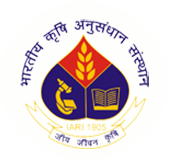Fred Sanger, double Nobel laureate : a biography / George G. Brownlee, Sir William Dunn School of Pathology and Lincoln College, University of Oxford.
Material type: TextPublisher: Cambridge : Cambridge University Press, 2015Description: 1 online resource (xxvii, 196 pages) : digital, PDF file(s)Content type:
TextPublisher: Cambridge : Cambridge University Press, 2015Description: 1 online resource (xxvii, 196 pages) : digital, PDF file(s)Content type: - text
- computer
- online resource
- 9781316015018 (ebook)
- 572.092 23
- QP511.8.S325 B76 2015
Title from publisher's bibliographic system (viewed on 05 Oct 2015).
Brief chronology -- Honours -- Introduction -- A Quaker upbringing -- How about studying insulin? -- Radioactive sequencing of proteins and nucleic acids -- Interview of Fred by the author in 1992 : early life -- Interview of Fred by the author in 1992 : insulin and the Biochemistry Department, Cambridge University -- Interview of Fred by the author, 1992 : nucleic acids at the MRC Laboratory of Molecular Biology, Cambridge -- Post-Sanger sequencing : high throughput, automated sequencing -- Cancer : the impact of new generation sequencing -- Commentaries on Fred Sanger's scientific legacy / by Paul Berg, Elizabeth Blackburn, Sir John Sulston, David Bentley, and Paul Nurse -- Epilogue.
Considered 'the father of genomics', Fred Sanger (1918–2013) paved the way for the modern revolution in our understanding of biology. His pioneering methods for sequencing proteins, RNA and, eventually, DNA earned him two Nobel Prizes. He remains one of only four scientists (and the only British scientist) ever to have achieved that distinction. In this, the first full biography of Fred Sanger to be published, Brownlee traces Sanger's life from his birth in rural Gloucestershire to his retirement in 1983 from the Medical Research Council's Laboratory of Molecular Biology in Cambridge. Along the way, he highlights the remarkable extent of Sanger's scientific achievements and provides a real portrait of the modest man behind them. Including an extensive transcript of a rare interview of Sanger by the author, this biography also considers the wider legacy of Sanger's work, including his impact on the Human Genome Project and beyond.


There are no comments on this title.